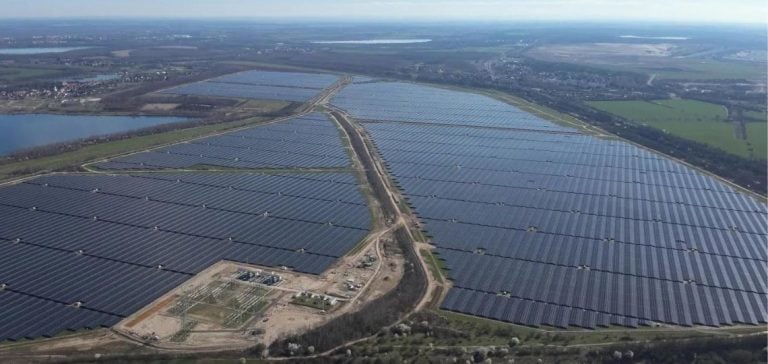Collaboration between players in the renewable energies sector is gaining significant momentum with the signing of a framework agreement between two major companies.
ENCAVIS AG, an operator of wind and solar farms, and Innovar Solar GmbH, a dynamic developer of solar projects, have agreed to develop solar projects in Germany, with a total capacity of 500 megawatts (MW).
This agreement marks an important step in the energy transition, enabling the rapid and efficient implementation of large-scale solar projects.
The framework agreement stipulates that the 500 MW capacity will be developed on an ongoing basis, meaning that new projects will be launched in parallel with those already underway, as long as individual projects reach ready-to-build (RTB) status within a defined timeframe.
This flexible approach maximizes resource efficiency and accelerates the development process, a crucial aspect in a sector where speed of execution is often decisive for commercial success.
Growth momentum for renewable energies
The cooperation between ENCAVIS and Innovar Solar takes place against a background of ever-increasing demand for sustainable energy solutions.
Stefan Veltrup, Managing Director of Innovar Solar GmbH, underlines the importance of this collaboration: “The partnership with Encavis is a further step in our quest for innovative and sustainable solar projects in Germany. The framework agreement for 500 MW gives us the opportunity to accelerate the energy transition”.
This statement underlines both companies’ commitment to meeting the growing need for renewable energy.
For his part, Mario Schirru, CIO/COO of ENCAVIS AG, adds that “the trusted cooperation with Innovar Solar enables us to expand our solar capacities in Germany from 412 MW to a much more significant scale”.
This expansion is essential to consolidate ENCAVIS’ position as an independent producer of electricity from renewable energies in Europe.
The increased solar power capacity is a major asset in an increasingly competitive market.
Impact on the energy market
The development of these solar projects has already begun, demonstrating the commitment of both companies to making concrete advances in the field of renewable energies.
The implementation of projects of this scale is likely to have a significant impact on the German energy market, particularly in terms of creating jobs, stimulating technological innovation and reducing carbon emissions.
The importance of decarbonization in the energy sector is increasingly recognized, and initiatives like this one are helping to achieve the climate targets set by governments.
By developing large-scale solar projects, ENCAVIS and Innovar Solar are actively participating in the transformation of the energy landscape, promoting a transition to more sustainable energy sources.
Future prospects
The agreement between ENCAVIS and Innovar Solar represents a significant step forward in the development of renewable energies in Germany.
By including solar projects in their portfolios, both companies are well positioned to meet the energy challenges of the future.
The flexibility of the development model, which allows projects to be adjusted according to their readiness status, is a major asset in ensuring the viability and profitability of investments.
Growth prospects in the renewable energy sector are promising, and strategic collaborations such as this are essential to catalyze innovation and expansion.
As the market continues to evolve, ENCAVIS and Innovar Solar’s commitment to developing sustainable solar projects could serve as a model for other players in the sector, reinforcing the importance of cooperation in achieving decarbonization goals.






















